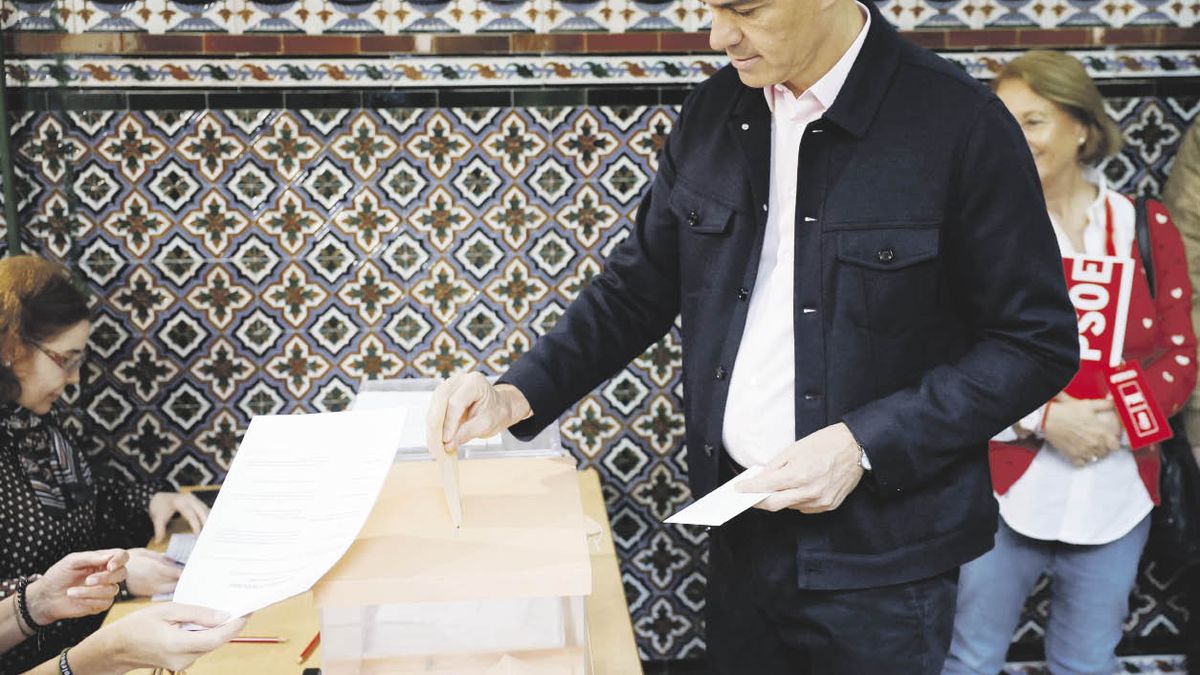Madrid – Six months before the national legislatures, the Socialist Party of the Prime Minister, Pedro Sánchez, suffered a severe setback in yesterday’s municipal and regional elections in Spain, according to the first official results and media projections.
The Popular Party (PP, right), led by Alberto Núñez Feijóo, who had made these elections a plebiscite on the president, achieved one of its main objectives and became the party with the most votes in the municipal elections. With almost 99% of the ballots counted, the PP obtained 6.9 million votes (31.53%) compared to 6.2 million (28.14%) for the ruling party.
In addition, the PP had almost assured the conquest of the governments of several regions until now led by the Socialists, such as Valencia, the fourth region of the country by population, according to public television TVE.
“We are in a tide of the right in Spain,” Miguel Ángel Revilla, the regional president of Cantabria, admitted at a press conference, where that sector would also have prevailed, according to various media.
“It is not what we expected after these weeks of electoral campaign and obviously we also have to reflect on the coming months,” admitted the spokeswoman for the Socialist Party, Pilar Alegría.
In another painful defeat, the Socialists would lose the mayor’s office of Seville, the largest city in Andalusia (south) and one of its strongholds, to the benefit of the PP, according to TVE.
The Socialists also failed in their attempt to recapture the city hall of Barcelona, the great metropolis of Catalonia, which it held from 1979 to 2011.
On this day without major incidents, the Spaniards were summoned to renew all the municipalities of the country and twelve of the seventeen autonomous communities (regions). Under the rain in various areas of the country, participation in the municipal elections was finally 63.89%, lower than that of the past 2019 elections (65.19%).
Although the name of Pedro Sánchez was not on any ballot, nor that of Alberto Núñez Feijóo, what was at stake was very important for the future of both politicians. Both were so involved in the campaign that they gave it a national and first-round look before the legislative elections at the end of the year, on a date yet to be decided.
These elections show that “the desire for change and that alternative (of the PP) is absolutely unstoppable” for the legislatures, the PP spokeswoman, Cuca Gamarra, congratulated herself at a press conference.
President of the government since 2018, Sánchez came to this electoral test with disadvantages: the wear and tear of power, as well as high inflation – although lower than in most European countries – and the resulting drop in purchasing power.
In addition, the image of the government suffered from the repeated clashes between the coalition partners: the socialists and the radical left of Podemos. According to the partial results, Podemos would have also suffered a net setback.
Sánchez campaigned puffing out his government’s balance sheet, especially boasting of good economic data.
The socialist leader had more to lose this Sunday, since of the twelve regions that renewed their parliament, and therefore their government, the socialists governed in ten, either directly or as part of a coalition.
The PP controlled the other two, including the one in Madrid, where the president of the region, Isabel Díaz Ayuso, from the hard wing of the party, was advancing to win an absolute majority in the regional parliament.
If the objective of the president of the leftist Government this Sunday was to resist, Núñez Feijóo’s objective was twofold: to obtain the greatest number of votes at the national level in the municipal elections and to wrest from the Socialists the greatest number of regions possible, to demonstrate, as he assures , that the country no longer wants the socialist leader. The problem for the right-wing leader is that he probably needs the extreme right of Vox, the third force in the national Parliament, to form a government in some regions. Even at the national level in the generals, scheduled for the end of the year.
Source: Ambito




